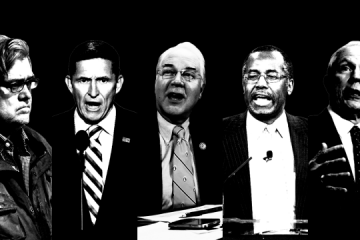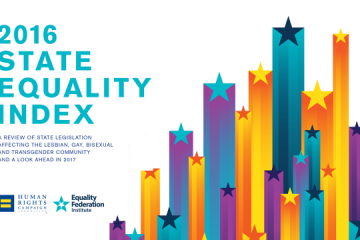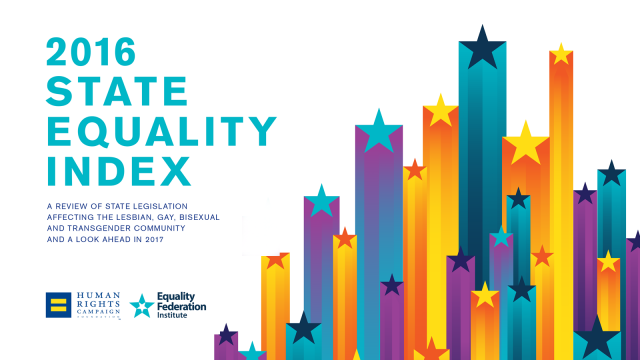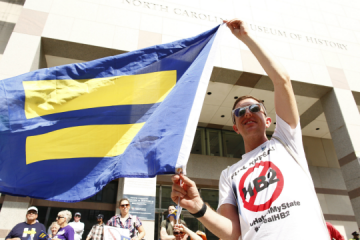Five of Trump’s Anti-LGBTQ Picks You Need to Know About
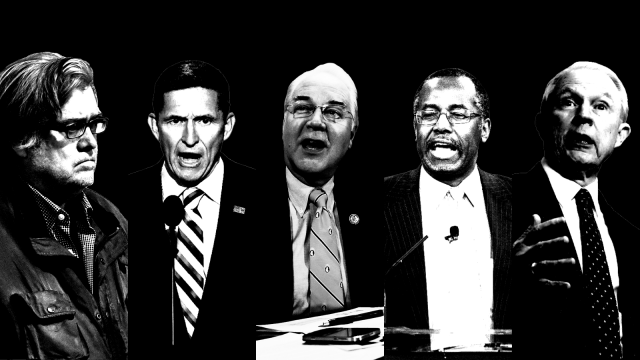
Since Donald Trump was elected more than a month ago, he has assembled a group of anti-LGBTQ officials as his top picks for his administration and transition team. While all cabinet members are all subject to Congressional approval, every single appointee deserves to be thoroughly vetted. And amongst his cabinet picks are three individuals with particularly troubling anti-LGBTQ records: Senator Jeff Sessions, Rep. Tom Price and Ben Carson.
One of the first nominees Trump named was vehemently anti-LGBTQ Alabama Senator Sessions to be U.S. Attorney General. If confirmed, Sessions would lead the U.S. Department of Justice, which is tasked with the fair and impartial administration of justice. Sessions voted against the Matthew Shepard and James Byrd Jr. Hate Crimes Prevention Act, saying it “has been said to cheapen the civil rights movement.”
Sessions received a zero on HRC’s congressional scorecard, and the ACLU characterizes his voting record as anti-civil rights. This troubling appointment is in stark contrast with Trump’s pledge to be a “president for all Americans.”
Sessions has:
- Voted for a Constitutional ban on marriage equality
- Voted against the Employment Non-Discrimination Act
- Spoke in opposition of the U.S. Supreme Court’s ruling in Obergefell
- Cosponsored the so-called First Amendment Defense Act, legislation that could allow Kim Davis-style discrimination against LGBTQ people across the nation
- Voted against both the Matthew Shepard and James Byrd Jr. Hate Crimes Prevention Act and expanding hate crimes to include sexual orientation, gender and disability
- Voted against repealing “Don’t Ask, Don’t Tell.”
- Opposes the Voting Rights Act
- Voted against reauthorizing the Violence Against Women Act
- Opposes immigration reform
Late last month, Trump named Tom Price as his choice for Secretary of Health and Human Services. Price, who would lead the 80,000-person Department, earned a score of “zero” on the past three HRC Congressional Scorecards.
Price opposes protections for transgender students in public schools and said the Supreme Court’s Obergefell decision resulted in “a sad day for marriage” and “judicial destruction of our entire system of checks and balances.”
Price has:
- Voted against the Matthew Shepard and James Byrd Jr. Hate Crimes Prevention Act
- Voted against repealing the ban allowing lesbian, gay and bisexual people to serve openly in the military
- Voted against federally funded needle exchange programs
- Voted against the Employment Non-Discrimination Act
- Voted for a constitutional amendment to define marriage as between one man and one woman. After the Supreme Court’s historic ruling in favor of nationwide marriage equality last year, Price said that the ruling was “not only a sad day for marriage, but a further judicial destruction of our entire system of checks and balances.”
- Voted against the reauthorization of the Violence Against Women Act
- Opposes the Affordable Care Act, which extends vital protections to LGBTQ people in healthcare settings
- Opposes a woman’s right to choose and voted to defund Planned Parenthood
- Called the U.S. Departments of Justice and Education issued guidance for school districts to ensure transgender students are treated with dignity in public and federally-funded schools “absurd.”
Last week, Trump named retired neurosurgeon Ben Carson, an outspoken opponent of LGBTQ equality, to run the Department of Housing and Urban Development.
During an interview with Sean Hannity, Carson compared LGBTQ marriage to bestiality stating, “Well, my thoughts are that marriage is between a man and a woman. It’s a well-established, fundamental pillar of society and no group, be they gays, be they NAMBLA, be they people who believe in bestiality, it doesn’t matter what they are, they don’t get to change the definition.”
Carson has:
- Opposes laws that protect LGBTQ Americans from discrimination
- Opposes laws that ban the debunked practice of so-called “conversion therapy”
- Joked that same-sex couples might have their wedding cakes poisoned by anti-equality bakers
- Asserted that being LGBTQ is a “choice”
- Suggested that transgender people be required to use separate bathrooms
Other recent picks include Rex Tillerson as Secretary of State, Andrew Puzder as Secretary of Labor and Betsy DeVos as Secretary of Education.
Two White House advisers who will not need Senate approval are Steve Bannon, who President-elect Trump tapped as his White House chief strategist, and Lt. Gen. Michael Flynn as National Security Adviser.
Bannon is well versed in attacking others, including LGBTQ people. Bannon said during a 2011 radio interview that conservative women are vilified because they are not “a bunch of dykes that came from the Seven Sisters schools.”
Bannon has:
- Launched a vile smear against transgender people during a May interview with the American Family Association while he was at the helm of Breitbart News, a white nationalist news organization known for it’s anti-LGBTQ, misogynistic and anti-Semitic viewpoint
- Attacked non-discrimination protections that ensure transgender people are able to use facilities that match their gender identity, repeating the debunked claim that such protections force children to “go into a bathroom with a guy with a beard in a dress”
- Managed a news site that regularly attacks LGBTQ people
- Directed a movie starring Duck Dynasty’s Phil Robertson, who promoted warnings against “poll-driven morality” (as a reference to growing acceptance of LGBTQ people)
Last month, Trump announced that retired U.S. Army Lieutenant General Michael Flynn as his pick for National Security Advisor. Flynn has history of animus toward LGBTQ people, most recently launching a vile attack on transgender people at the Republican National Convention in July during his prime time appearance.
“War is not about bathrooms,” he said. “War is not about political correctness or words that are meaningless.”
Flynn has:
- Made numerous Islamophobic statements, including tweeting “Fear of Muslims is rational”
- Promoted several debunked conspiracy theories about Sharia law

